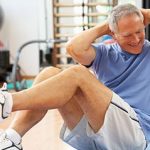
FRIDAY, Jan. 6, 2023 (HealthDay News) – While NFL safety Damar Hamlin is still critically ill after suffering cardiac arrest during a game on Monday, he is making a “fairly remarkable recovery,” his doctors said during a news conference on Thursday. “There has been substantial improvement in his condition over the past 24 hours,” Dr. Timothy Pritts, a professor in the department of surgery at the University of Cincinnati College of Medicine, told reporters. “We had significant concern about him after the injury and after the event that happened on the field. But he is making substantial progress. As of this morning, he is beginning to awaken, and it appears that his neurological condition and function is intact.” Hamlin is “awake and breathing,” though still on a ventilator, Pritts added. He can communicate by writing with a pen and paper. “When he asked did we win, the answer is, ‘Yes, you know, Damar, you won, you’ve won the game of life,” said Pritts, referring to Hamlin’s question about who won the game after his collapse. His medical team could not say what caused the cardiac arrest in the 24-year-old, but Dr. William Knight IV said, “tests will continue to be ongoing as he continues to progress.” “It’s been a long and difficult road for the last three days,” said Knight, a professor in the university’s… read on > read on >





























-300x200.jpg)







-300x169.jpg)
